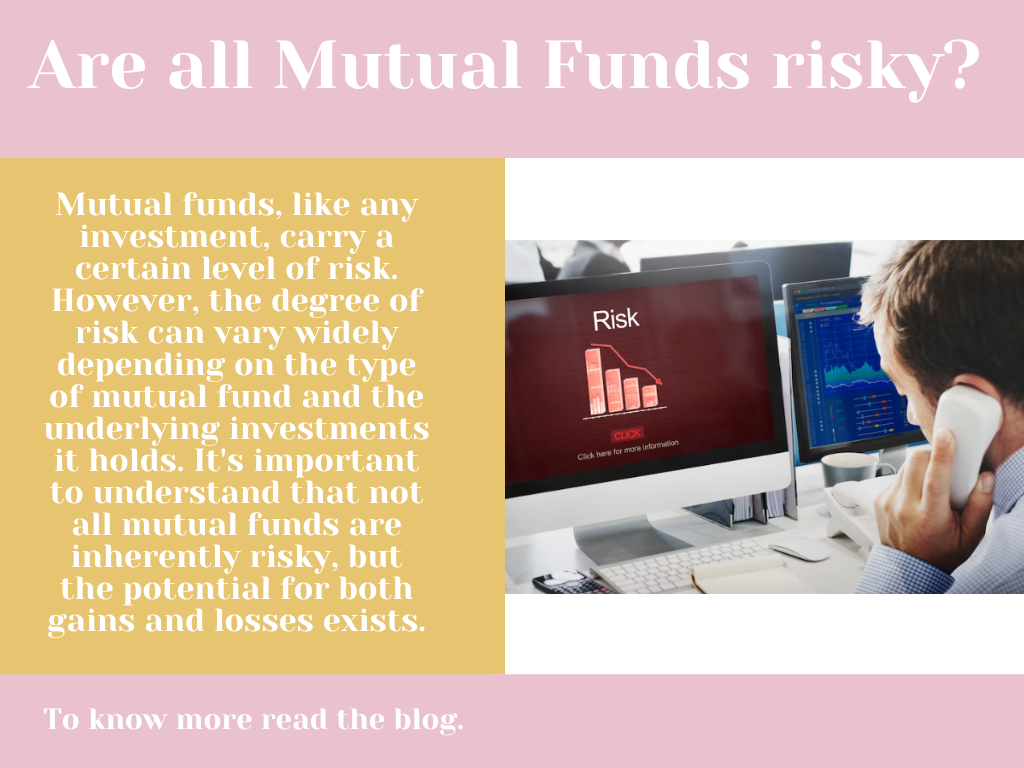Are all Mutual Funds risky?
Mutual funds, like any investment, carry a certain level of risk. However, the degree of risk can vary widely depending on the type of mutual fund and the underlying investments it holds. It's important to understand that not all mutual funds are inherently risky, but the potential for both gains and losses exists.
Here are a few factors that contribute to the risk associated with mutual funds:
Market Risk: Mutual funds are subject to market fluctuations, which can impact the value of the investments held within the fund. If the market experiences a downturn, the value of the mutual fund's holdings may decline, potentially resulting in a loss for investors.
Investment Objective and Strategy: Different mutual funds have varying investment objectives and strategies. Funds that aim for higher returns typically carry a higher level of risk. For example, equity funds that invest in stocks have a higher potential for returns but also higher volatility compared to bond funds that focus on fixed-income securities.
Diversification: Mutual funds often provide diversification by investing in a wide range of securities. This diversification can help reduce risk by spreading investments across different asset classes, sectors, or geographic regions. However, it's important to note that diversification does not guarantee against losses.
Fund Management: The performance of a mutual fund can be influenced by the skills and decisions of the fund manager. A skilled and experienced manager may be able to navigate market conditions effectively, while an inexperienced or ineffective manager could potentially impact the fund's performance.
Fees and Expenses: Mutual funds typically charge fees and expenses, such as management fees and operating expenses. These costs can affect the overall returns of the fund, so it's essential to consider the impact of fees when evaluating a mutual fund's potential returns.
To assess the risk associated with a mutual fund, it's important to review the fund's prospectus, which provides information on the fund's investment objectives, strategies, historical performance, and risk factors. Additionally, you should consider your own investment goals, risk tolerance, and time horizon before investing in any mutual fund. Consulting with a financial advisor can also be helpful in understanding the risks and determining suitable investment options for your specific circumstances.


